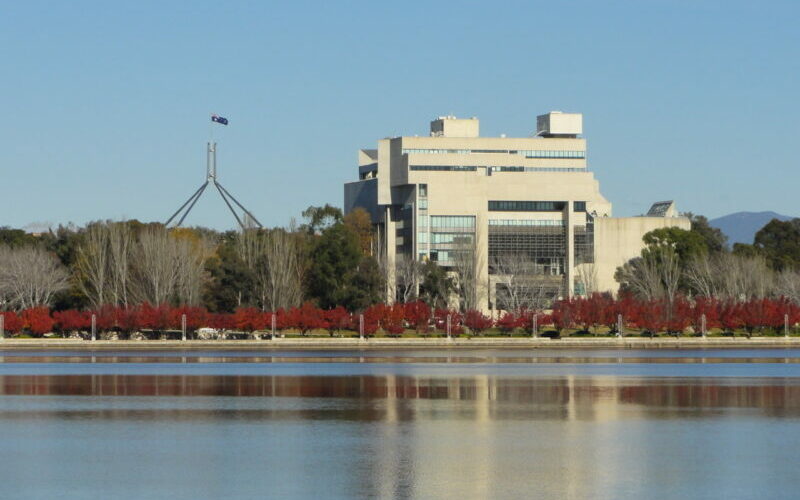Britain's 'enduring stranglehold' on Australia
October 13, 2021
Australia is still tied to British legal decisions from 1786. It should come as no surprise that the Uluru Statement of the Heart directly challenges Australia’s entrenched legal doctrine.
We can now see, in retrospect, that decolonisation was the 20th centurys most consequential development. Most of the worlds nation states have a history of liberation from the chains of empire joining those in the Americas which had gained their independence in the first great era of decolonisation between 1783 and 1820.
Prime Minister Scott Morrisons recent celebration of his “forever” alliance with Britain and the United States reminds us that Australia is an anomaly among the community of nation states.
It has remained partly within the embrace of empire and partly independent continuing all the while to maintain the ceremonial trappings of a Crown colony. It is symptomatic of our situation that we have never been able to decide if we ever attained the full status of an independent sovereign state and if so when.
We can learn a lot from those historical events we choose to commemorate.
Conservative Australians favour three occasions Cooks voyage along the east coast in 1770; the arrival of the First Fleet in January 1788 and the landing of our troops at Anzac Cove in April 1915. So we have three moments in our history 145 years apart. What unites them is that they are all British Imperial events rather than national ones.
The implication is that nothing that Australians have ever done here at home can match those events gilded by the glow of empire.
It is not surprising then that we have great difficulty in dealing with the problem of sovereignty.
This became sharply apparent with release of the Uluru Statement in May 2017 which was endorsed by First Nations leaders from “all points of the southern sky” representing the “first Nations of the Australian continent”.
Their sovereignty, the statement declared, had “never been ceded or extinguished, and co-exists with the sovereignty of the Crown”. With relevant reform it could “shine through as a fuller expression of Australias nationhood”.
It is an inspiring vision. But as the law now stands it is not possible.
Britain annexed Australia in three stages in 1788, 1824 and 1829. Imperial ambition was boundless.
The Crown became the beneficial owner of all the land and the original sovereign at the same time due to the fact that the continent was “a tract of territory practically unoccupied, without settled inhabitants or settled law” as the Privy Council declared in 1889.
The question of sovereignty has been dealt with by Australian courts on a number of occasions over the past 40 years. In 1979, High Court judge Harry Gibbs was quite emphatic, declaring that the contention that there is in Australia an Aboriginal nation “exercising sovereignty, even of a limited kind, is quite impossible in law to maintain”.
But that was only part of the problem.
Our courts have determined that questions about Britains acquisition of sovereignty cannot even be considered in Australia. In 1975 Gibbs explained that the acquisition of territory by a sovereign state for the first time was “an act of state which cannot be challenged, controlled or interfered with by the courts of the state”.
This interpretation was confirmed by then High Court Chief Justice Gerard Brennan in the Mabo Case in 1992. Everything suggests that this remains settled law in Australia.
These declarations may be fully in line with the correct legal doctrine. But the concomitant political message is truly extraordinary albeit rarely considered.
Australia is chained to legal decisions made in Britain in 1786.
It is not so much a matter of a forever embrace, more an enduring stranglehold. And just consider the context.
The legal instruments proclaimed by Arthur Phillip at Sydney Cove on February 7 had been drawn up by a handful of colonial office officials who knew almost nothing about Australia but were convinced the eastern half of the continent was occupied by small numbers of Indigenous people so low in the great chain of being that they lacked any meaningful social organisation and lived without recognisable laws or customs.
It was a view that the more perceptive colonists like David Collins and Watkin Tench questioned in the very early days at Sydney Cove and was progressively overtaken as ethnographic knowledge accumulated in all the Australian colonies.
But the common law it seems was impervious to intellectual challenge. Just over 100 years after the establishment of Sydney the Privy Council perpetuated the egregious misconceptions which provided the original justification for the blanket denial of both property rights and at the very least internal sovereignty.
The Uluru Statement is a direct challenge to entrenched legal doctrine. That should come as no surprise.
Why would First Nations Australians show any respect for the law as it stands which is so deeply rooted in the idea that their ancestors were wandering savages without meaningful ties to their ancestral land?
The explanation that Australian courts cannot challenge, control or in any way interfere with what the British decided 235 years ago is just too extraordinary to be sustained.
It is a declaration of jurisprudential impotence and continuing national deference. And above all else it presents modern Australians with the challenge of how to bring their law back home and in the process deal with the remaining challenges of decolonisation.

